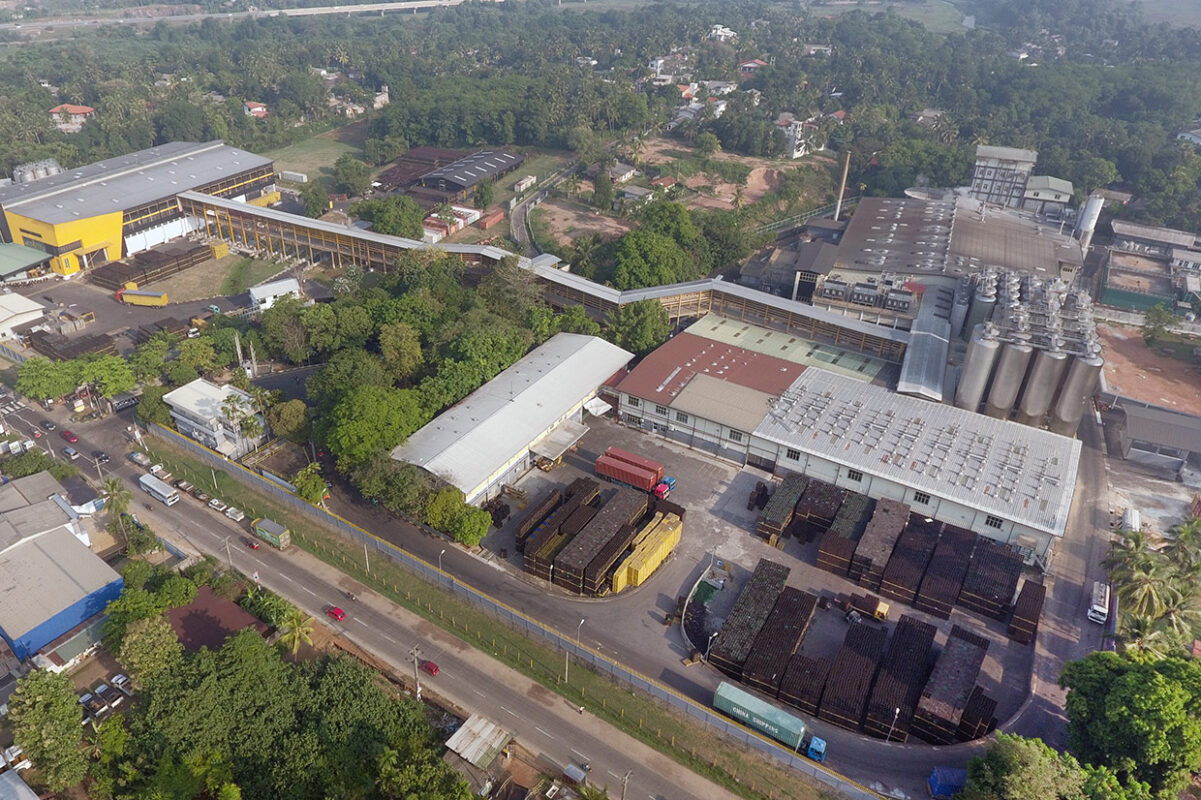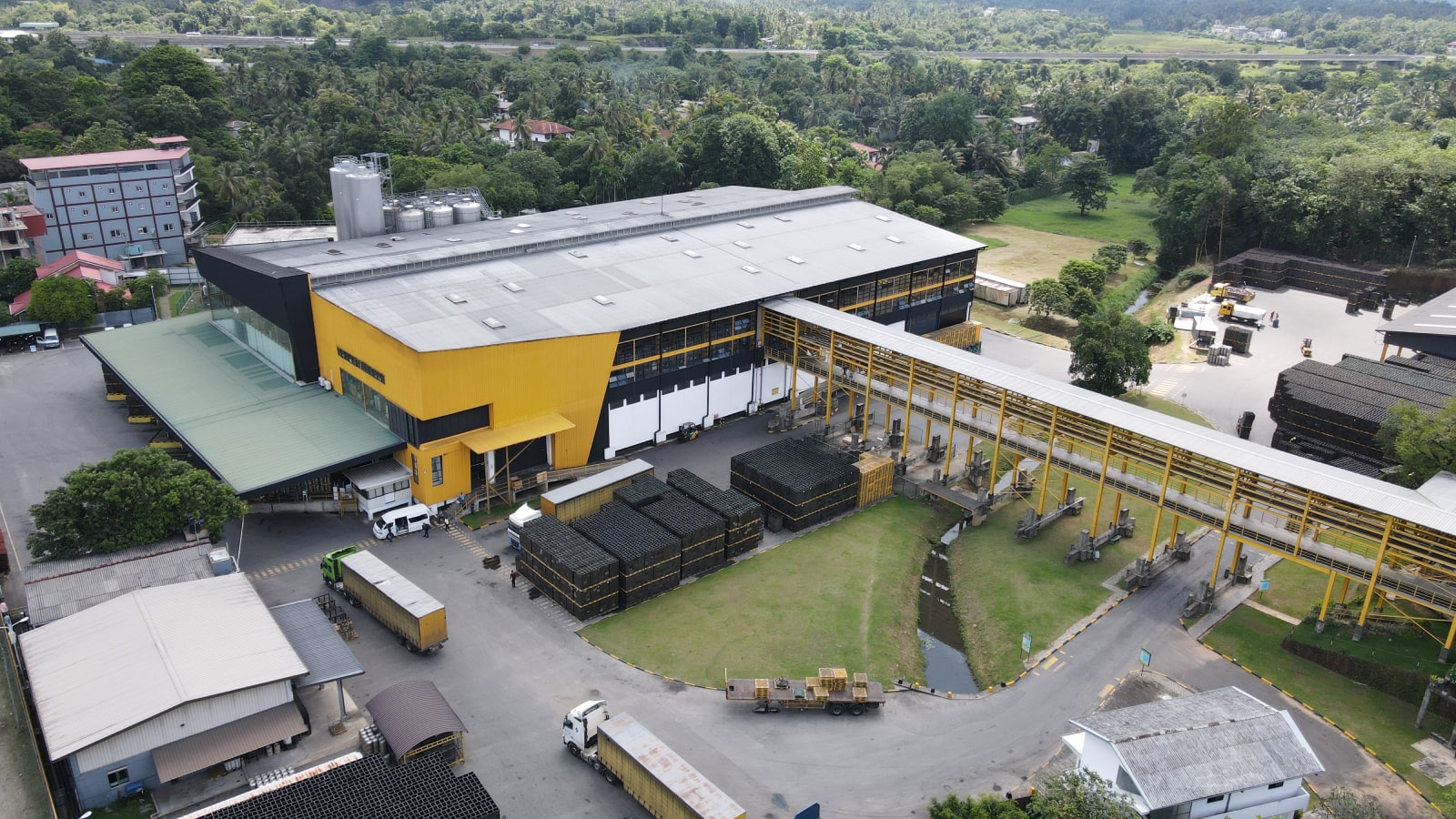Anyone who has ever ordered a beer in Sri Lanka is sure to recognize Lion Lager, whose label bears a majestic lion’s head. It’s the country’s most popular beer, and it’s produced by Lion Brewery, which attaches great value not only to the quality of its beers but also to environmental sustainability.

Holistic approach, modular structure
Lion contracted Steinecker to carry out a brewery process assessment to identify potential for improvement in its production operations. Initially, only the brewery area itself was to be examined. But it quickly became clear that a holistic approach made more sense, taking into account the process and filling technology and utilities. As a result, Krones’ factory planning specialists also played a part: An interdisciplinary team of experts from Krones and Steinecker set to work together with the Lion Brewery team, evaluating current consumption levels within each area, identifying potential for optimization and developing specific actions that can be taken to reduce consumption and, by extension, cut costs.
Thanks to the companies’ many years of collaboration, the entire project could be carried out remotely – on the one hand thanks to the level of technical competence of Lion’s personnel, on the other hand because Krones is already deeply familiar with the equipment on site. Back in 1996, Lion built what was, at the time, a state-of-the-art brewery at its Biyagama site. Krones and Steinecker served as turnkey suppliers delivering the technology for the brewing operation and for filling the beer into glass. Since then, they have added a second brewhouse, expansions to the cellar, another glass line and a canning line.

The sustainability assessment is based on the Brewnomic system, whose modular structure allows it to be configured as needed. “In theory, you can optimize and implement each part individually. But when you bring together several different stand-alone modules, they complement each other. The resulting synergies make the whole far greater than the sum of its parts,” explains Norbert Ottmann, Technical Expert for Sustainability and Energy Efficiency. “So, we analyzed which modules make sense for Lion Brewery. We started with the low-hanging fruits, those aspects that can be relatively easily tweaked to generate big improvements quickly and without huge capital outlays,” says Jochen Loefflad, Technical Engineer at the Steinecker sustainability team.
Severin Thomandl, Head of Sales Asia Pacific at Steinecker adds: “Lion also has a multi-stage plan for the months and years ahead that is adjusted for output targets and sustainability goals. The savings the company wants to achieve in each area, including the operating costs associated with heating, electrical power and water, can also easily be reflected in monetary terms, which gives solid touch points both for the technology and management ¬for future investment decisions.”
Brewnomic: Supply concept for an energy-self-sufficient, carbon-neutral brewery
- Innovative brewing technology to reduce primary energy consumption
- Recovery of thermal energy and its use across the plant
- Biomass conversion of brewery residuals and use of alternative energy sources
Which processes will Lion Brewery optimize?
In the first stage, Lion Brewery will optimize energy consumption in the brewhouse and reduce total evaporation by upgrading energy recovery and the Stromboli wort boiling system. In the future, the brewery also considers converting the two mashing groups from steam to hot water. In other words, the brewhouses will run on the Steinecker EquiTherm Brew recovery system. In the first stage of the wort cooler, energy contained in the hot wort will be recovered and put into the energy storage tank. This recovered thermal energy, in turn, will supply all of the energy needed in the mashing process. Looking further into the future, other consumers can also be connected to the energy storage tank, to reduce peak loads even more.
Another solution, which is effectively at the interface between the process and filling sections, is warm filling. Right now, the beer is filled at eight degrees Celsius. The goal is to fill at 15 degrees Celsius. That would save cooling energy, which can then be put to use elsewhere in the operation. That also has a positive effect on both filling and from a supply perspective. “On the one hand, this makes it possible to save heating energy on the warmer and, on the other hand, additional water can be saved on the cleaning machine. Due to both the reduced cooling energy and the reduced heating energy, the supply technologies used can be operated more efficiently with fewer losses,” explains Matthias Heinl, Energy and Sustainability Consultant in the Sustainable Customer Solutions department.
Moreover, the technological optimization can be expected to yield considerable improvements in cleaning systems (pipe-clearing, times, temperatures) without the need for investment in new equipment.
“Following the energy assessment carried out by Krones, we were introduced to the Brewnomic package, from which we have already converted some quick wins and have now started work on the medium to longer term improvements. We look forward to exploring the Steinecker Phoenix BMC as we move towards an energy-independent, carbon-neutral brewery,” says Widhura Nuwan, Senior Vice President Engineering at Lion Brewery.



